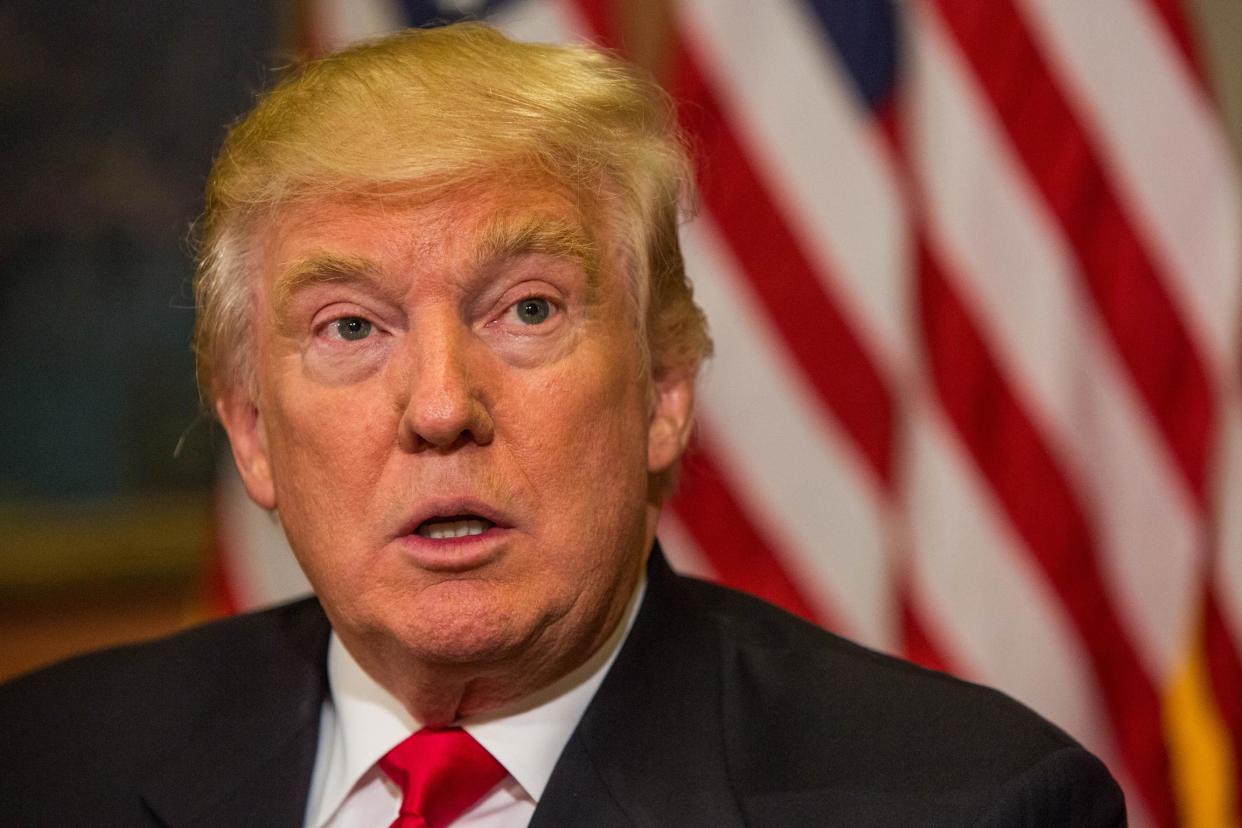This Republican Elector Won't Vote Trump

Christopher Suprun, a Republican presidential elector, will not be voting for Donald Trump. Suprun announced his decision in an op-ed in the New York Times, in which he said that he could not, in good conscience, cast his vote for his party's presidential candidate. "I watch Mr. Trump fail to unite America and drive a wedge between us," he wrote.
Suprun detailed the reasons he finds Trump unfit to be president, including that Trump "does not encourage civil discourse, but chooses to stoke fear and create outrage," that he has "urged violence against protesters at his rallies during the campaign," and "lacks the foreign policy experience and demeanor needed to be commander in chief."
Suprun is one of 538 presidential electors who are expected to cast their votes according to the electoral score; Trump earned 306 and Hillary Clinton earned 232 electoral votes. Though rare, an elector can decide to flip his or her vote. If at least 37 Republican electors refuse to cast their vote for Trump, as Suprun is doing, there is a chance that Trump would not become president. Suprun urges his colleagues to do the same:
The election of the next president is not yet a done deal. Electors of conscience can still do the right thing for the good of the country. Presidential electors have the legal right and a constitutional duty to vote their conscience. I believe electors should unify behind a Republican alternative, an honorable and qualified man or woman such as Gov. John Kasich of Ohio. I pray my fellow electors will do their job and join with me in discovering who that person should be.
However, in the New York Daily News, reporter Jason Silverstein explains why the effort is likely to fail:
The Constitution says that, without a majority, the House of Representatives would choose three candidates based on who received the most Electoral College votes. Those would inevitably be Trump, Clinton and some third contender who may have never even been a nominee (could be Bernie Sanders, could be John Kasich, who knows).
Each state would then cast one vote for those three candidates, with the winner of that vote becoming the President.
Remember: The Republicans control the House, and the majority of states (30, plus part of Maine, which has its own split system) went to Trump. Once again, the numbers are in his favor.
But Americans haven't lost hope yet. An online petition urging electors to reject Trump has raised 4.7 million signatures, making it the most popular in history.
Follow Prachi on Twitter.
You Might Also Like

